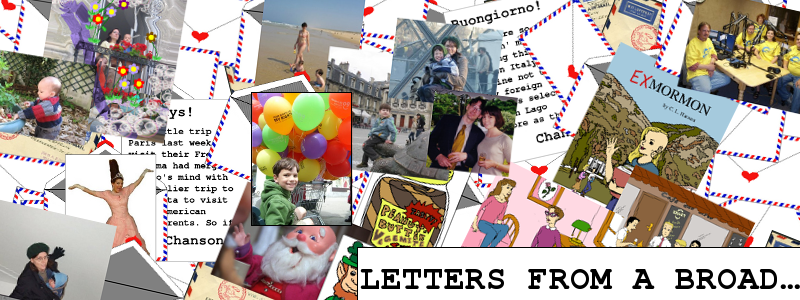I've been hearing a lot in the news lately about anti-bullying education in schools. I have to admit that I was surprised when I first heard about it because bullying was always one of those "kids are like that" sort of things that I'd never questioned. But now that I'm thinking about it, I'm thinking that maybe it is possible to change it.
Let's start with the reasons why I'm a little sceptical of the whole idea:
I remember, when I was in elementary school, having a weekly educational program called "Project Charlie." The idea behind it was to have kids play self-esteem-building games in order to avoid later using drugs. And I remember -- as a fifth and sixth-grader -- thinking that this was the dumbest program that I could possibly imagine. It wasn't the usual "stuff grown-ups want us to do is by definition dorky" kind of assessment. It's that the program was a series of social games where the popular kids were encouraged to take center-stage as usual, and no effort was made to draw out the less-popular kids and make them feel included.
As an example, they would start every session by choosing one kid to come to the board and compose a sentence starting with "You are someone special..." Naturally, the popular kids were selected early and often. When I finally got a turn, kids from the class teased me and mocked my sentence. This wasn't surprising -- I expected to be teased and bullied for anything I did in front of the class -- but it kind of left me going "What the hell is the purpose of this exercise?!" And I learned the lesson that the phrase "You are someone special" is just words when it's coming from an institutional program.
Fortunately, in my own home, I was never made to feel like I deserved it. I come from a long line of nerds, so being bullied was just one of those things that you expect to have to cope with, like really cold weather in the Minnesota winter. The coping mechanisms I was taught (or figured out) were the following:
* Ignore it, if possible; attempt to pretend you don't even hear it,
* try to blend into the crowd; don't give the mean kids any reason to notice you,
* keep in mind that when you are older and out of school you will not have this problem.
Following these strategies, already by high school it started getting a little better -- Jr. High was the worst.
But bullying isn't just a question of a handful of bad-apple mean kids. Once an outcast has been selected, joining the group in mocking that person (or at least being obviously complicit in it) becomes a badge of belonging for everyone else in the group. And kids who are bullied will often give back as good as they get, when they get the opportunity. That was one of the more disturbing things I discovered when I re-read my early-teen journals as an adult. My actual teen and childhood memories were full of vivid, horrible scenes of being that outcast. Yet I found that when it came to writing my stories down (in my good little Mormon-girl journal), I was far more inclined to recount the few incidents when I was on the bullies' team against someone even more socially rejected than I was. This is, quite frankly, because I had internalized the idea that there's far more shame in
being the outcast than in tormenting the outcast. (This is illustrated a bit in the story
Young Womens'.)
As I grew up, I learned from experience that being a bully is more shameful than being an outcast. But I'm sure I could have learned this lesson earlier if the adults around me had thought it was an important and valuable lesson to learn.
Just because Project Charlie was poorly designed and implemented, that doesn't mean that it's not possible to design a good program. And targeting the specific behaviors of bullying -- teaching kids that it's not OK to do that -- may well be a more realistic goal than the rather nebulous goal of "raising self-esteem."
Kids' expected behavior (and their corresponding actual behavior) can change pretty dramatically from one generation to the next. Reading some kids stories from the American frontier, it's kind of shocking the degree to which it was just expected that little kids would fight each other for dominance, to determine which one was the toughest. Parents of the time probably just figured "Hey, kids are like that," and maybe gave them some pointers on how to win. But even if it seemed like "that's just the way kids are," modern society has clearly shown that this behavior is not immutable.
The more I think about it, the more I think it might work. The key is to change people's expectations. If adults see taunting and bullying and turn a deaf ear, thinking
Ah, kids..., then kids learn that it's acceptable. But if you train everyone in the school (adults and kids alike) that certain behaviors aren't acceptable, it stands to reason that the behavior will change. (And according to
this answer sheet that's the kind of program that works.)
One can argue that this addresses only the symptom. After all, even with no bullying, it's not like the popular kids were going to like me or pick me first when choosing teams in gym class. But, y'know, I could totally accept that I'm never going to be prom queen. Just not having kids shove you and laugh about it or make up a mean song about you for the rest of the class to sing in unison -- already that would make a big difference.





